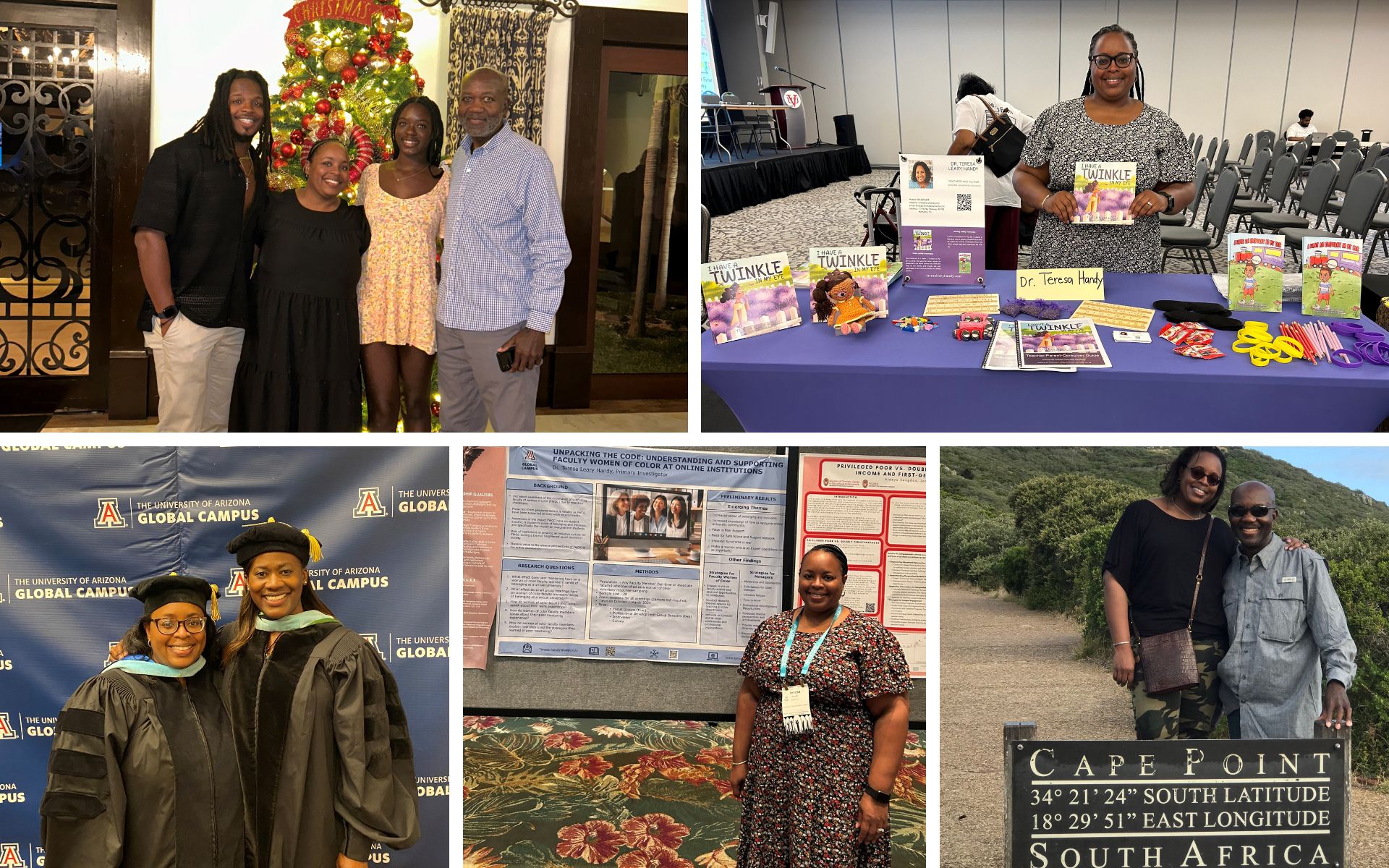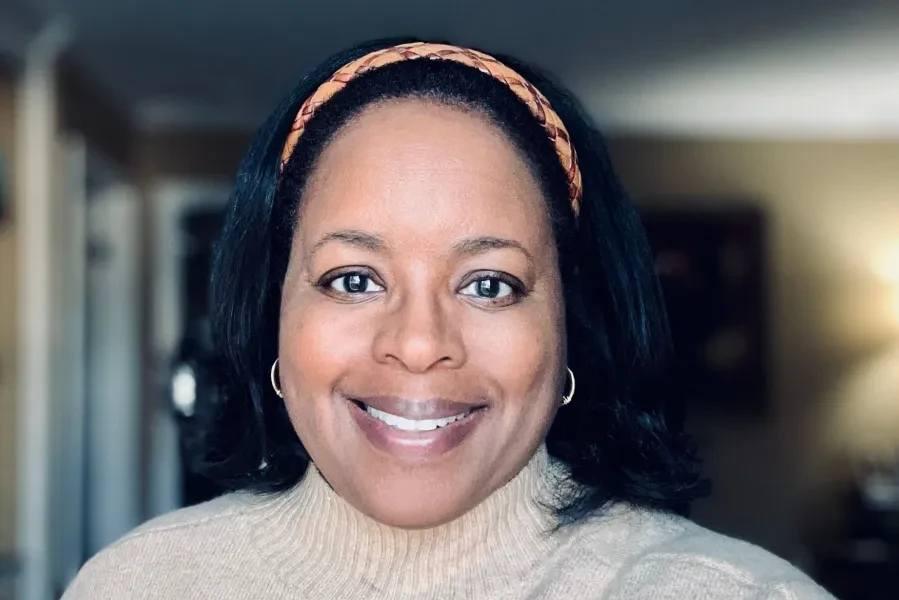For Dr. Teresa Leary Handy, education has always been the ticket to everything. Through a lifetime of study for teaching and social work, she holds her schooling — and the pursuit of it — in the highest regard.
“Nobody can take your education from you. That’s what my father always said,” she reflects. “Get all you can and can all you get, because the more education you get, the more opportunities you open up for yourself, and that's been true for me.”
Teaching as “The Heart Work”
Dr. Handy’s passion for teaching sets the stage for her professional background, with one such example being a project she underwent in her college days.
While completing her undergraduate degree at Spelman College in Atlanta in 1986, Dr. Handy saw an opportunity to help the children living in a housing development behind her school. Together with her friends, they pooled their resources and launched a Saturday morning tutoring program, where they brought snacks and played games with the kids while helping them with their studies.
The program continued after her graduation, with the group recruiting tutors throughout Dr. Handy’s college career. In hindsight, she wasn’t aware just how impactful this program would be, but fondly recalls receiving a touching message from one of her students decades later.
“She's now doing amazing things, and she said, ‘I just want you to know how much that meant to me as a little girl’,” Dr. Handy recalls. “How did I know that, as this quirky teenager in college, that this moment on Saturdays was so meaningful to this person?”
Even now, Dr. Handy’s calling goes beyond rote teaching. As the Program Chair in the School of General Studies at the University of Arizona Global Campus (UAGC) she works to understand her students by finding commonalities through life and school and applying them to her teaching practices, a venture that gives her a deeper perspective on students that are at the starting point of their educational careers.
“My job is to unpack higher education and make it accessible,” she says. “That is how I see myself. I am guiding the student’s learning, and when I see a spark or interest from them I feed that with more information specific to them. I allow time for students to explore on their own to make their personal connections, but I am always there to guide them.”
Education Values Throughout Life
As a self-described daughter of a preacher and a teacher, Dr. Handy places a strong emphasis on building communities and orienting herself in service. She grew up in several different places, from her birthplace of Rhode Island to her childhood in Virginia and living in Wisconsin, Georgia, and Illinois, among others.
“I was really able to integrate myself into the community, regardless of where I lived,” she says. “That really helped me to learn how to be adaptable.”
One of her career objectives revolves around social work. While working toward her undergraduate degree, Dr. Handy chose to major in sociology and pursue a minor in education, connecting them together during her time in school. She also earned a master’s degree in social work through the University of Chicago. She went on to become a child welfare social worker before taking time off to raise her two children. After 18 years, she returned to education.
Eventually, Dr. Handy earned her doctorate from the University of Memphis on her 50th birthday, but she wasn’t the only one who earned their doctoral degree a bit later in life. Her late father graduated with a doctorate in ministry when he was in his 60s. She attributes much of her drive of learning to watching him move through his life and career, like working in the activism sector through the Gamaliel Foundation in Chicago, where he even trained former president Barack Obama.
“Watching my father navigate and support lots of people through his actions really aligned with my values as a social worker, as an educator,” she says. “It's a natural fit for me to be an educator, but I use my social work hat all the time.”

Clockwise, from left: 1) Dr. Handy with her family in Cabo San Lucas for Christmas. Her son, James, works in marketing at a fortune 100 company, her daughter, Phoebe, is a senior in high school, and her husband, Carl, is a business owner and farmer. 2) Dr. Handy at a bookfair at Virginia Union University sharing her children’s books about ability differences. 3) Dr. Handy and her husband in South Africa. 4) Dr. Handy presenting research at NCORE in Honolulu, Hawaii. 5) Dr. Handy with UAGC faculty member Dr. Tamecca Fitzpatrick at commencement. Dr. Handy says Dr. Fitzpatrick is the reason she is at UAGC. Dr. Fitzpatrick is a former graduate school instructor of hers and they fostered a wonderful friendship after the class ended. They also wrote a peer-reviewed article about how they went from student to colleague.
Staying Involved Across the Boards
While Dr. Handy currently calls Memphis home, she remains an active member of several organizations both near and far. She stays involved with her alma mater as an alumni association board member for the University of Chicago Crown Family School of Social Work, Policy and Practice. In Memphis, she also serves on the board of the Promise Academy Charter School and is on the board of Community Foundation of Greater Memphis advisory team for GIVE 365.
Beyond her main role in the UAGC community, she supports several internal organizations like Teaching and Learning Conference, Culture of Care Summit and faculty council. In addition, Dr. Handy also helps Dr. Newton Miller with the Global Black Community club’s history program.
Always in the learning space, Dr. Handy has run several book clubs with her friends over the years in her free time. She’s a published author herself, and has written two niche children’s books titled “I Have an Elephant in my Ear” and “I Have a Twinkle in My Eye,” which cover topics of ability differences.
She is looking forward to building out her book series as one of her passions.
The learning also continues on the road. Dr. Handy has visited every state except for Alaska, where she would travel with her family during the summers. Her own daughter is considering pursuing a career in education alongside her travels, and she sees similar approaches she takes to her life as she does to her own.
“I think it's important if I want my children to be successful that you have a vision for your family,” Dr. Handy says. “You have to have a vision for your children, and that's been a big part of how I've governed my life as a parent and as a professional.”
Instilling Opportunity Everywhere
Connectivity continues to be a major theme in Dr. Handy’s current teaching methodology. By using her own identifiers, like being a woman and having a blended family, she facilitates connections with her students in her GEN 101 class and other entry point courses. That way, she can understand the students and their goals to help them create the optimal environments for them to thrive.
“I try to really understand that ‘why’ and I try to encourage that ‘why.’ I try to share my connections to their purpose as well,” she says. “I also try to connect the course content to that purpose. I try to show them how they can use the information they're going to get in the course to help them achieve their goals.”
Through her methods, Dr. Handy says that she finds fulfillment in helping her students discover themselves in a whole new light by bringing relevancy to them through the coursework. While her role can be described as the entry point for the start of their academic careers, she adds that self-discovery is something that holds benefits long after they leave the classroom.
“I have students saying, ‘I've never taken time to think about myself. Thank you for allowing me to think about me and my future and my plans’,” she says.
